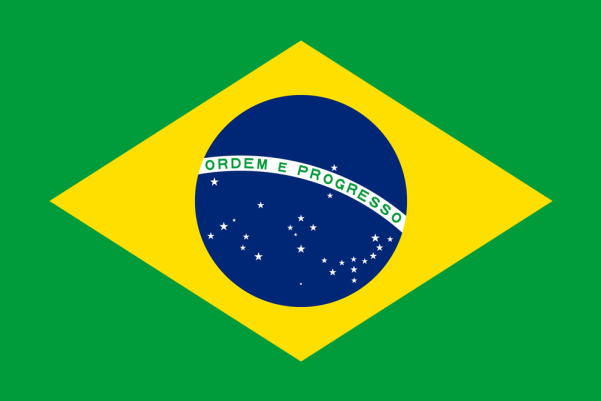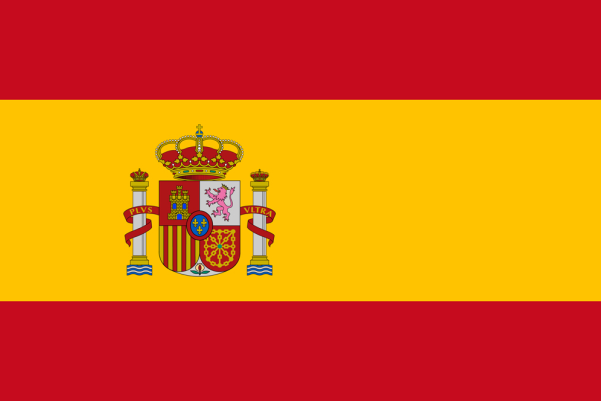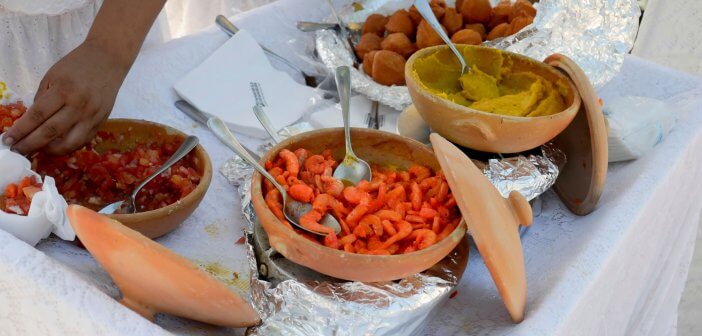Brazilian street food from Bahia in the Northeast of Brazil
In the busiest urban centres, street food continues to thrive in so many ways, from street vendors selling soups out of thermos flasks to makeshift eateries set up on street corners. I always say that to truly uncover the cuisine and customs of a city or region, you first need to take a look at its street food.
Every Brazilian city has its own speciality. In Pará, for example, tacacá (a soup made from the cassava root extract and served in a gourd) is an enormously popular street dish and one that speaks volumes about the indigenous cuisine of Pará.
My recipe for this edition is perhaps the most famous and authentic example of street food in Bahia. The dish demonstrates how the influence of African cuisine has become an intrinsic cultural element of classic Brazilian cooking.
Abará with Vatapá
The baianas that sell acarajé in Salvador usually start to set up their stalls by about 4 pm. The ritual begins with their chosen clothing: Some wear long skirts and dresses, but the most traditional costume is an authentic Candomblé dress, which is white and embroidered. The embroidery can be simple or more intricate in nature. Vendors wear an ojá (or turban) along with a striking necklace of beads, with each colour representing an orixá.
The abará is displayed in a wooden tray, as is the famous acarajé, which is basically the same dough as the abará, but fried instead of steamed. To accompany the acarajé or the abará there’s caruru (okra), vatapá, salad, dried shrimp and chilli. The chilli is hot, so proceed with caution – Baianas tend to apply the chilli in accordance with the accent of the customer!
When people leave work or go to the bakery to buy some “cacetinhos” (a bread roll in Bahia), many are powerless to resist these delicious snacks. I’m always unsure about which to order. Anyone from Bahia knows just what I’m talking about. Acarajé or abará, abará or acarajé? I usually end up eating both!
Recipes
Abará (enough for 12 average-sized abarás)
- 300g of shelled black beans (black-eyed peas, already found shelled in African food stores)
- 2 large white onions
- 50g of dried shrimps (found in Asian food stores)
- 4 tablespoons of palm oil (dendê)
- Salt to taste
- Banana tree leaves
Soak the beans in cold water for 10 hours. Drain and place in a food processor with the onion, shrimp, salt and palm oil. Blend for 5 minutes. Cut the banana leaf into a rectangle shape (30cm by 20cm). Open the leaf and place tablespoons of the mixture on top. Fold the bottom closed and then roll the leaf to create a parcel. Fold close the top. Steam cook for 10 minutes.
Vatapá
- 5 slices of white bread with crusts removed
- 200ml of shrimp broth
- 600ml of coconut milk
- 1 medium-sized stem of ginger, chopped
- 1 sliced onion
- 2 cloves of garlic, crushed
- 2 peeled tomatoes with seeds removed
- 50g of headless dried shrimp
- 50g of peanuts
- 20g of cashew nuts
- 2 chillies with seeds removed
- 3 tablespoons of palm oil
- Salt to taste
Soak the bread in the shrimp broth and the coconut milk. Sauté the onion, ginger, garlic, chilli and tomatoes in a pan. Add the shrimp, peanuts, cashew nuts and soaked bread. Simmer for half an hour whilst stirring continuously (cooks from Bahia need to have strong arms to prepare acarajé and vatapá) until the mix begins to thicken. Beat in a blender. If it becomes too thick add more coconut milk. Taste and add salt if necessary. When the mix begins to form a paste, you have reached a good consistency.
Place the abará and the vatapá on a plate. Serve with vinaigrette and dried shrimp. I personally only like vatapá with the vinaigrette. The acidity of the vinaigrette helps cut the taste of the palm oil.
For more information about Brazilian gastronomy including recipes visit BBMag “Food and Drinks” section or click here

















